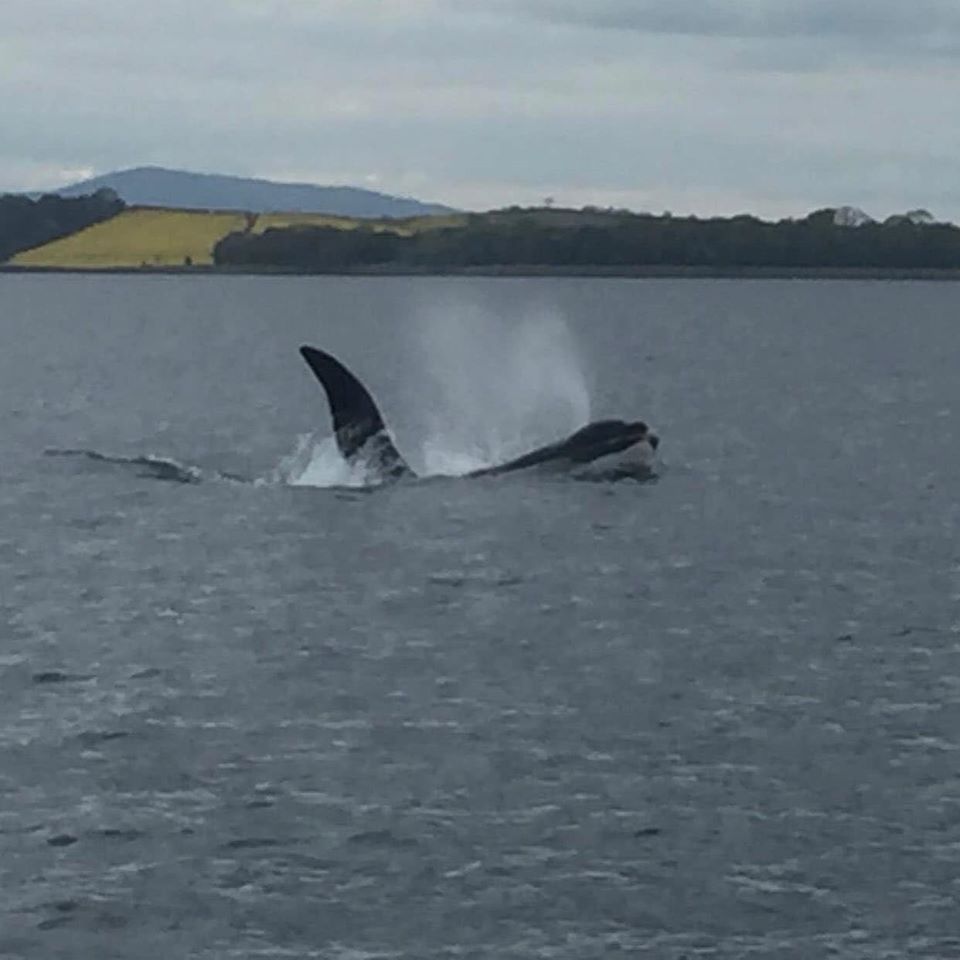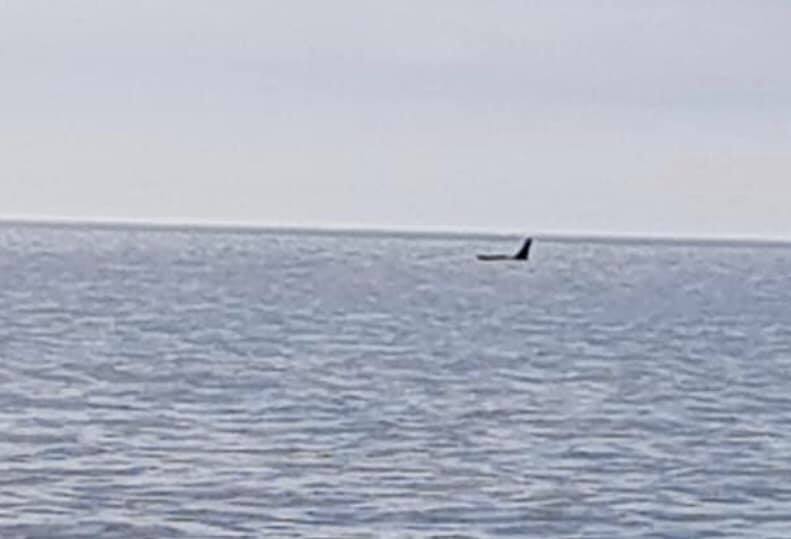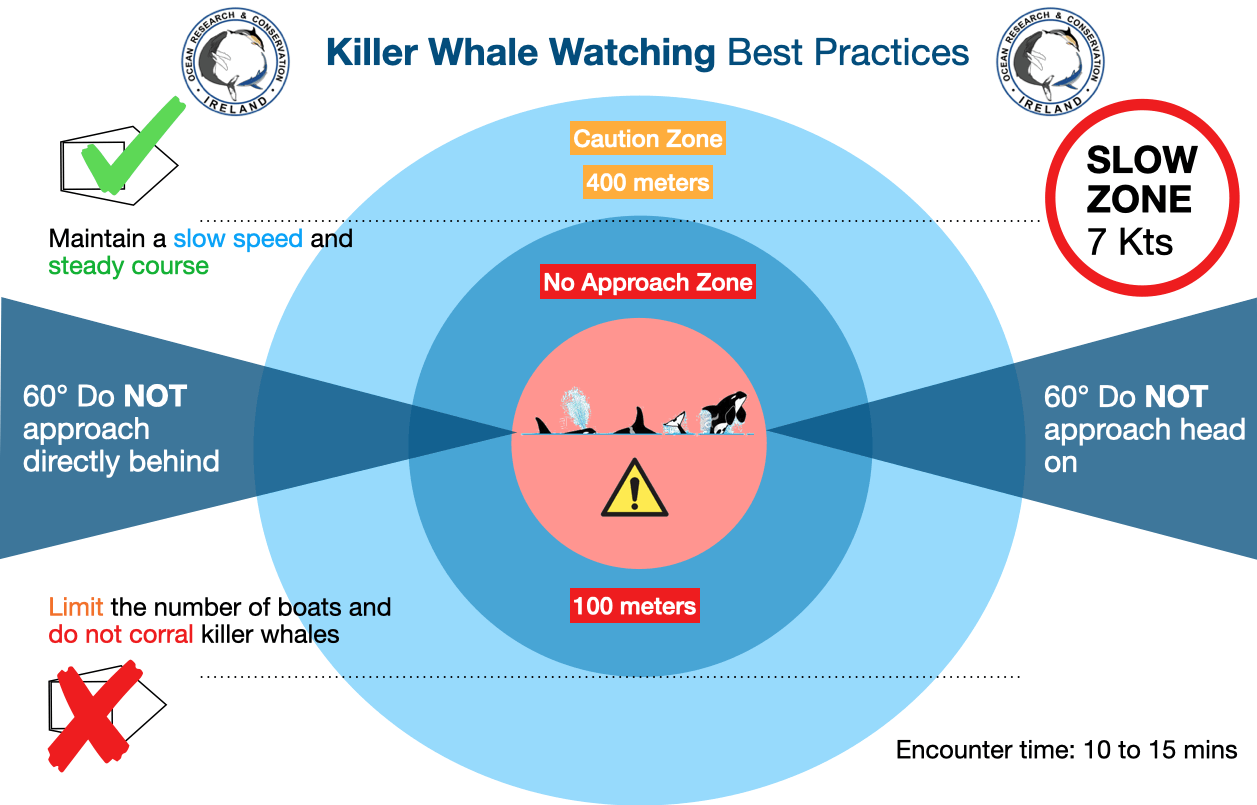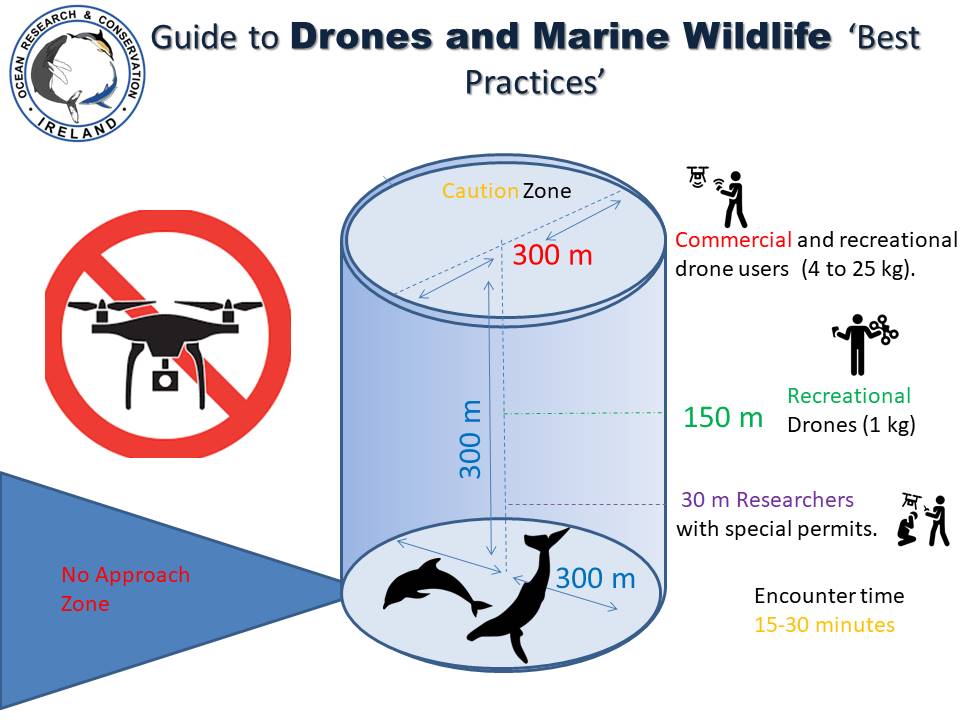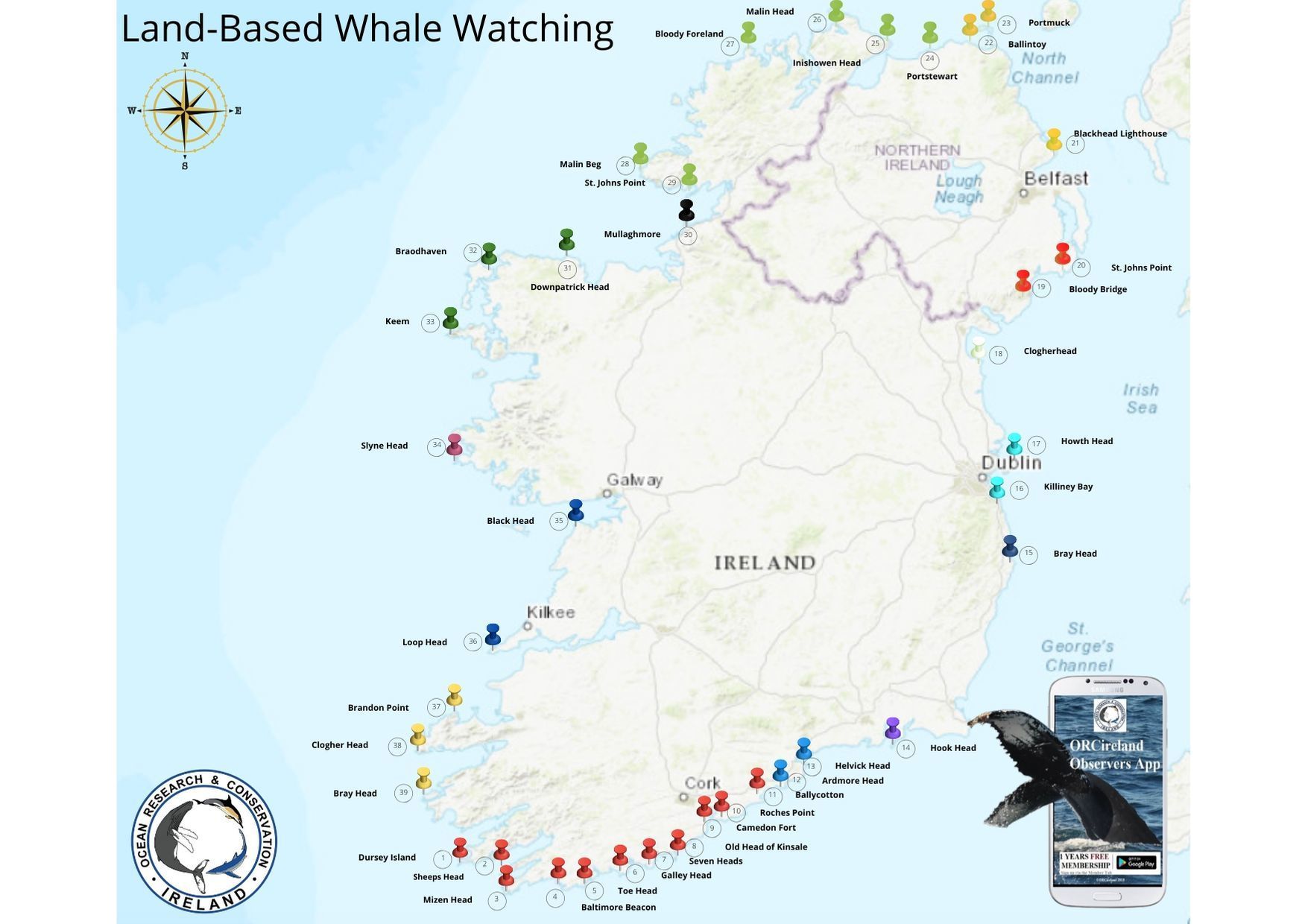2020's First Sightings of Killer whales; "John Coe" and "Aquarius" in Irish waters.
The famous killer whales "John Coe" and "Aquarius" are back in Irish waters. Citizen scientists from Northern Ireland reported sightings of John Coe and Aquarius to the Observers App yesterday, while Facebook, Instagram and Twitter blew up with images and videos of the charismatic cetaceans. People from all over the country, whose homes are located in coastal areas are now on high alert as these whales are likely to do the rounds of our shores during their visit here. Some of the likely places to see them include Howth Head, Galley Head, Baltimore Beacon, Mizen Head and Sheeps Head. We remind people to continue to implement social distancing at all times but if you do happen to be lucky enough to encounter these beautiful animals also keep your distance and do not harass them.
Killer whale "John Coe" of the Scottish West Coast Community. Photo by: Paul Smith.
This years first sighting of the Scottish West Coast killer whales "John Coe" and "Aquarius" was made by a local fisherman Michael Pleasants off Ardglass Harbour, Downpatrick, Co. Down, the whales then made their was into Strangford Lough, a large sea inlet on the North-east coast of Northern Ireland. John Coe has been sighted all around the Irish coast over the years including in the Irish Sea, the west Coast, the south coast and Donegal Bay.
Killer whale photographed from on-board a fishing vessel off Ardglass Harbour. Source: Michael Pleasants.
At 18:55 the whales were also photographed by Paul Smith on-board the Causeway Lass. By 20:15 they were in sighted heading out of Strangford Lough by Portaferry, and were filmed and photographed by Simon Lundy and Jermey Rodgers.
Simon Lundy captured this stunning footage above of the killer whales at sunset in Strangford Lough. Meanwhile, Jeremy Rodgers had a close encounter with the two killer whales in the video below.
Jermey Rodgers also captured "John Coe" up close - seen below: John Coe was first seen in the 1980's and is a frequent visitor to Irish shores.
John Patrick Campbell also reported his sightings to the Observers App and captured footage of the killer whales being followed closely by a recreational boat.
Incredible drone footage was also captured by Ross Mullhall below which gives an aerial view of the whales and the boats heading out to see them. These boats were not following best practice guidelines unfortunately - likely out of simple lack of awareness for what to do and what not do do in this kind of situation.
These killer whales could show up now anywhere along the Irish coast given their highly mobile nature. These whales are a from a very small pod of only 8 individuals who are highly threatened due to their heavy pollutant burden we ask that boaters, both recreational and commercial to please follow our "Killer whale Watching Best Practices" during encounters at sea and to ensure they stay a distance of 400 meters and maintain a slow speed of 7 knots.
" Really poignant to see these individuals on #endangeredspeciesday - this tiny group are going extinct. loosing a uique eco-type in the North Eastern Atlantic. A combination of extreme PCB toxin levels and a small number of individuals in the population have resulted in the demise of the West Coast Community
" - says Hebridean Whale and Dolphin Trust.
In addition as drones have become more readily available for recreational use, we expect many more records this summer of marine wildlife filmed with unmanned aerial vehicles (UAVs) and we ask that drone pilots please follow our "Guide to Drones and Marine Wildlife Best Practices" maintain a flight height of 300 meters above cetaceans and maintain 150 meters distance.
So if you are lucky enough to encounter these very special whales please make sure you maintain your distance so not to stress them out and report your sightings to the Observers App - available to download from Google Play. Preferable viewing them from a land-based view point is optimal. Some of the best places you may view them include Howth Head, Bray Head, Hook Head, Galley Head, and many more. There are over 40 sites around the Island of Ireland you could potentially view these whales from (see map below) - so dont feel the need to travel far, we are still in the midst of a global pandemic.
© Ocean Research & Conservation Ireland (O.R.C.Ireland) and www.orcireland.ie , est. 2017. If you like our blogs on the latest news in marine science and would like to support our work, visit www.orcireland.ie to become a member, to volunteer or to make a donation today. This article has been composed based on credible sources.
SHARE THIS ARTICLE







